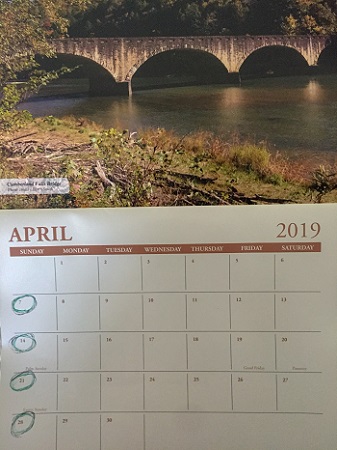Dog-tired
 After a dog’s long hunt, chase, or play, it drops to the ground dog-tired. Following long busy days, we also feel tuckered out and want to collapse.
After a dog’s long hunt, chase, or play, it drops to the ground dog-tired. Following long busy days, we also feel tuckered out and want to collapse.
Dog-tired means exhausted.
Worn out, we want nothing more than rest. We long for:
- No responsibility
- Time alone
- To sleep like a log
Dog-tired often makes us grouchy.
We don’t want anyone or anything to bother us. If someone interrupts our rest, our response frequently falls short of perfect.
Like dogs, our fatigue comes from common causes.
We engage in too much:
- Work
- Play
- Other activity with too little time
When possible, let’s pace ourselves.
- Work with others so workloads don’t overload.
- Take time to enjoy favorite activities.
- Do what we can and don’t stress about the rest.
Look for the positives in whatever we do and try not to overdo.
“For I have given rest to the weary and joy to all the sorrowing” (Jeremiah 31:25 TLB).
Thanks to Beckham Wilson for the suggestion.
Do you have an expression you want explained or a thought about this one? If so, please comment below.
Subscribe to receive my weekly posts by email and receive a free copy of “Words of Hope for Days that Hurt.”
If you enjoyed this post, please share it with your friends.



 Sometimes life gets so loud I can’t hear myself think.
Sometimes life gets so loud I can’t hear myself think. Do you ever meet yourself coming and going? With
Do you ever meet yourself coming and going? With  My friend Phyllis recently had an ox in the ditch. She and her husband dressed for church. Then they noticed a cow having trouble birthing its calf. Their cow needed help. Putting
My friend Phyllis recently had an ox in the ditch. She and her husband dressed for church. Then they noticed a cow having trouble birthing its calf. Their cow needed help. Putting  A month of Sundays means a long time.
A month of Sundays means a long time. We all need an occasional pick-me-up.
We all need an occasional pick-me-up. Years ago, people made mattresses from sacks stuffed with hay or straw. When it was time to go to bed, they would say:
Years ago, people made mattresses from sacks stuffed with hay or straw. When it was time to go to bed, they would say: